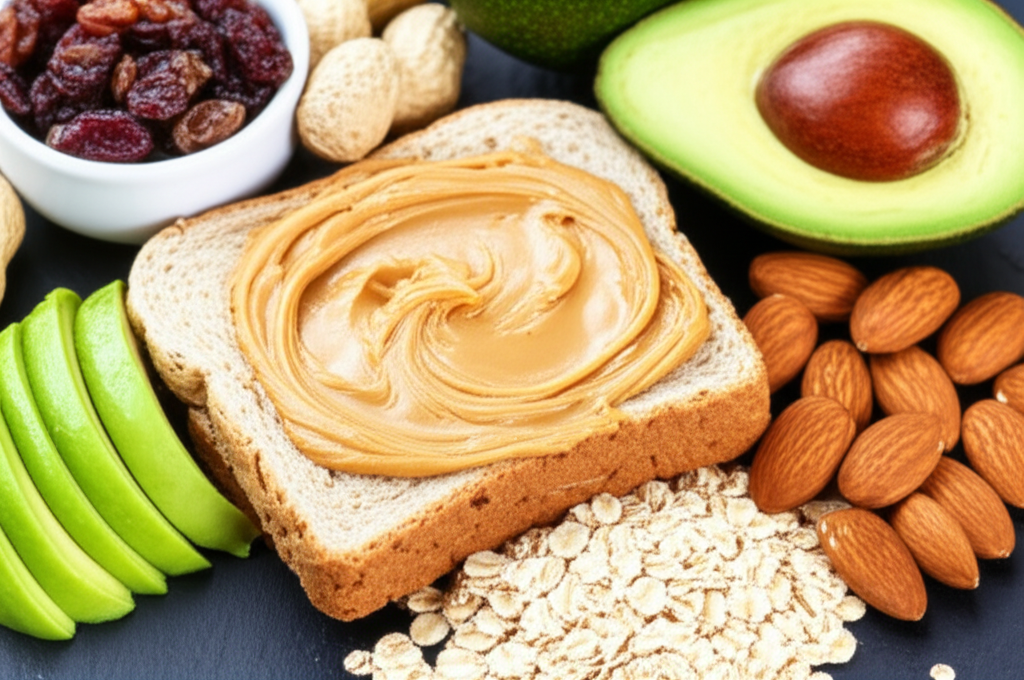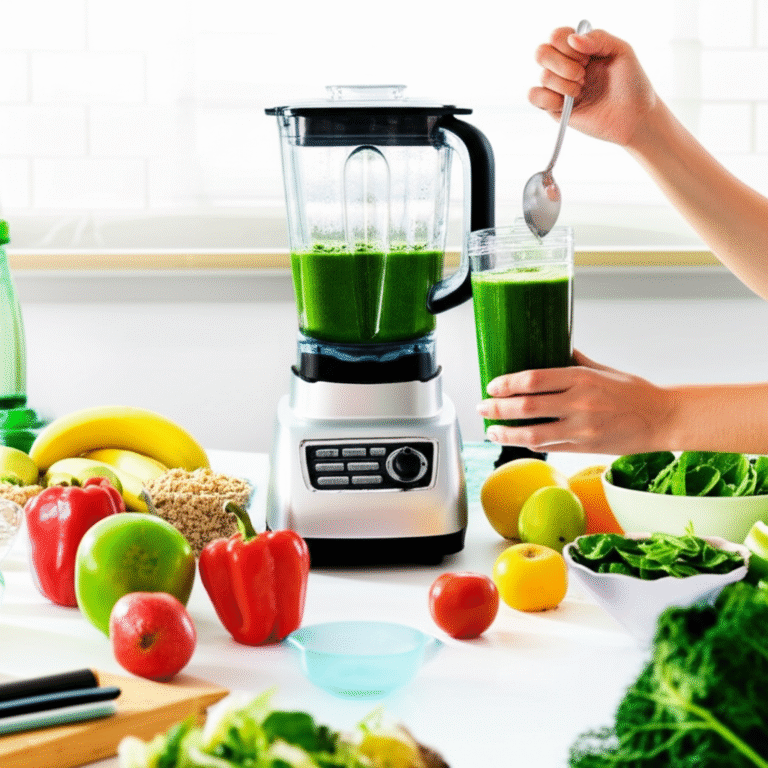Proven weight gain foods are nutrient-dense options like nuts, seeds, avocados, healthy oils, and whole grains that provide essential calories and nutrients to support muscle growth and healthy weight gain. Focusing on these foods, combined with a balanced diet and exercise, is key for fast, sustainable results.
Do you ever wish it was easier to add a few healthy pounds and feel stronger? You’re not alone! Many people struggle with unwanted weight loss, feeling a little too thin, or not having enough energy. It can be frustrating, but the good news is that gaining weight healthily is absolutely achievable with the right knowledge and a supportive plan. You don’t need extreme diets or complicated routines. Instead, we’ll focus on simple, powerful strategies and delicious foods that can help you reach your goals. Let’s discover how to fuel your body for a healthier, stronger you! In this guide, we’ll break down the best foods and strategies for safe and effective weight gain.
Understanding Healthy Weight Gain

Gaining weight isn’t just about eating more; it’s about eating the right things. The goal is to add healthy mass, which means building muscle and increasing your body’s stores of essential nutrients, rather than just accumulating excess body fat. This approach leads to a stronger, more energetic, and confident you. Think of it as building a healthier foundation for your body. When we talk about “fast results,” it’s important to set realistic expectations. Healthy weight gain is a process that involves consistency and patience. We aim for steady progress, not overnight transformations. This means making sustainable dietary choices that support your body’s needs.
For weight gain, a general principle is to consume more calories than you burn. However, the quality of those calories is paramount. Focusing on nutrient-dense foods ensures that the extra calories contribute to muscle growth and overall health, rather than just adding fat. This often involves increasing your intake of healthy fats, complex carbohydrates, and lean proteins. It’s not about indulging in junk food; it’s about strategically incorporating calorie-rich, wholesome foods into your daily meals and snacks. This mindset shift will make a significant difference in your journey.
Proven Weight Gain Foods: Your Essential Toolkit
When you’re aiming for healthy weight gain, stocking your kitchen with the right foods is your first and most important step. These aren’t just empty calories; they are powerhouses of nutrients that your body needs to build muscle and increase your healthy weight. Let’s dive into some of the best options:
1. Healthy Fats and Oils
Fats are calorie-dense, meaning they pack a lot of energy into a small volume. Choosing healthy fats is crucial for providing sustained energy and supporting hormone production, both vital for weight gain. These foods are your secret weapon for adding calories without feeling overly full.
- Avocado: A fantastic source of monounsaturated fats, fiber, and various vitamins and minerals. Avocados are versatile – you can add them to smoothies, salads, sandwiches, or enjoy them on toast.
- Nuts and Seeds: Almonds, walnuts, cashews, peanuts, sunflower seeds, pumpkin seeds, and chia seeds are packed with calories, healthy fats, protein, and fiber. They make for excellent snacks or additions to meals. Nut butters (like peanut butter, almond butter) are also a calorie-dense option.
- Olive Oil and Coconut Oil: Extra virgin olive oil and virgin coconut oil are great for cooking or drizzling over salads. They add healthy fats and calories to your meals easily.
- Fatty Fish: Salmon, mackerel, and sardines are not only rich in protein but also high in Omega-3 fatty acids, which are beneficial for overall health and can support an anti-inflammatory response.
2. Protein-Rich Foods
Protein is the building block of muscle. To gain weight healthily, you need to ensure you’re consuming enough protein to support muscle repair and growth, especially if you’re incorporating strength training into your routine. Aim to include a protein source in every meal and snack.
- Lean Meats: Chicken breast, turkey, lean beef, and pork are excellent sources of complete protein. These provide essential amino acids necessary for muscle synthesis.
- Eggs: A complete protein source, eggs also contain healthy fats and essential nutrients. They are easy to prepare in countless ways.
- Dairy Products: Full-fat milk, yogurt, and cheese can significantly boost your calorie and protein intake. Greek yogurt, in particular, is very high in protein. If you’re lactose intolerant, consider lactose-free options or alternatives.
- Legumes: Beans, lentils, chickpeas, and peas are not only good sources of protein but also complex carbohydrates and fiber. They are a fantastic plant-based option.
3. Complex Carbohydrates for Energy
Carbohydrates provide the energy your body needs to function and to fuel your workouts. Choosing complex carbohydrates ensures a steady release of energy and provides essential fiber and micronutrients. These add healthy calories and support your energy levels.
- Whole Grains: Oats, brown rice, quinoa, whole wheat bread, and pasta are excellent sources of complex carbs, fiber, and B vitamins. They provide sustained energy throughout the day.
- Starchy Vegetables: Potatoes, sweet potatoes, corn, and peas are nutrient-dense and provide a good amount of complex carbohydrates and calories.
- Fruits: While generally lower in calories than other food groups, fruits like bananas, mangoes, and dried fruits (raisins, dates, figs) are good sources of natural sugars for quick energy and also contain vitamins and fiber.
4. Calorie-Boosting Additions
Sometimes, you just need an extra boost of calories without adding a large volume of food. These additions can easily be incorporated into your existing meals or snacks.
- Dried Fruits: Raisins, dates, apricots, and figs are concentrated sources of calories and natural sugars. Great for snacking or adding to cereals and yogurt.
- Smoothies and Shakes: Blend fruits, vegetables, protein powder, yogurt, milk, nuts, seeds, and healthy oils to create a calorie-dense, nutrient-rich meal replacement or snack.
- Granola: Many granolas are made with oats, nuts, seeds, and dried fruits, making them a calorie-dense addition to yogurt or milk. Opt for those with lower added sugar.
Sample Weekly Meal Plan for Healthy Weight Gain
Here’s a sample meal plan to give you an idea of how to incorporate these proven weight gain foods into your daily routine. Remember, this is a template, and you should adjust portion sizes and food choices to meet your individual needs and preferences. The key is consistency and ensuring you’re eating enough throughout the day.
| Meal | Monday | Tuesday | Wednesday | Thursday | Friday | Saturday | Sunday |
|---|---|---|---|---|---|---|---|
| Breakfast | Oatmeal with walnuts, berries, and a scoop of protein powder. Full-fat milk. | Scrambled eggs (3) with avocado toast on whole-wheat bread. | Greek yogurt (full-fat) with granola, sliced banana, and almond butter. | Whole-wheat pancakes with peanut butter swirl, topped with berries. | Smoothie: Spinach, banana, protein powder, almond milk, chia seeds, and a tablespoon of almond butter. | Oatmeal with dried cranberries, pecans, and a drizzle of honey. Full-fat milk. | Scrambled eggs (3) with cheese and a side of whole-wheat toast with butter. |
| Mid-Morning Snack | Apple slices with peanut butter. | Handful of almonds and dried apricots. | Full-fat cottage cheese with pineapple chunks. | Banana and a small protein shake (whey or plant-based). | Rice cakes with avocado and a sprinkle of salt. | Trail mix (nuts, seeds, dried fruit). | Small bowl of Greek yogurt with a drizzle of honey. |
| Lunch | Grilled chicken breast salad with mixed greens, avocado, olive oil dressing, and a side of quinoa. | Lentil soup with whole-wheat bread and butter. | Tuna salad (made with Greek yogurt or mayo) sandwich on whole-wheat bread with a side of carrots and hummus. | Leftover chicken stir-fry with brown rice. | Salmon fillet with roasted sweet potatoes and steamed broccoli. | Turkey and cheese wrap on a whole-wheat tortilla with avocado and a side of mixed green salad. | Lean ground beef chili with beans, served with a dollop of sour cream. |
| Afternoon Snack | Hard-boiled eggs (2) and a handful of walnuts. | Full-fat yogurt with a tablespoon of chia seeds. | Peanut butter on whole-wheat crackers. | Cheese stick and a pear. | Avocado smoothie (avocado, milk, a touch of honey). | A small portion of leftover chili. | Handful of cashews and some dried mango. |
| Dinner | Lean beef steak with mashed potatoes (made with milk and butter) and green beans. | Baked chicken thighs with brown rice and roasted brussels sprouts. | Spaghetti bolognese with whole-wheat pasta and a side salad. | Pork tenderloin with sweet potato fries and a side of asparagus. | Chicken and vegetable stir-fry with noodles. | Baked cod with roasted root vegetables (carrots, potatoes, parsnips). | Roast chicken with mashed sweet potatoes and gravy. |
| Evening Snack (Optional) | Glass of full-fat milk or a small protein shake. | Small bowl of oatmeal with a spoonful of nut butter. | Full-fat Greek yogurt with a few berries. | A few dates stuffed with almond butter. | Small portion of leftovers or a glass of milk. | A small protein bar. | A small bowl of ice cream or fruit salad with cream. |
Strategies for Successful Weight Gain
Beyond just knowing which foods to eat, implementing the right strategies will make your weight gain journey much more effective. It’s about creating a supportive environment for your body to thrive and build healthy mass.
Eat Frequently
Instead of trying to cram a lot of calories into just a few meals, aim to eat smaller, more frequent meals and snacks throughout the day. This makes it easier to increase your overall calorie intake without feeling uncomfortably full. Aim for 5-6 “eating opportunities” per day.
Prioritize Calorie-Dense Foods
As we’ve discussed, focus on incorporating those healthy fats, nuts, seeds, avocados, and full-fat dairy. These pack more calories per serving, helping you reach your calorie surplus goals more efficiently.
Add Boosters to Meals
Make simple additions to your regular meals. Drizzle olive oil on your vegetables, add a spoonful of nut butter to your oatmeal or smoothie, top your yogurt with granola and nuts, or sprinkle cheese on soups and salads. These small additions can significantly increase calorie intake.
Consider Liquid Calories
Smoothies and shakes are fantastic for weight gain. They are easy to consume, can be packed with nutrients, and allow you to blend calorie-dense ingredients like fruits, vegetables, protein powder, yogurt, milk, nut butters, and healthy oils. Drinking a glass of milk or a calorie-fortified shake between meals can add substantial calories.
Strength Training is Key
To ensure the weight you gain is primarily muscle mass, incorporate regular strength training exercises into your routine. Lifting weights signals your body to build muscle. Aim for at least 2-3 full-body workouts per week. Consult with a fitness professional if you’re new to exercise to learn proper form and create a suitable plan.
For more on strength training for beginners, check out resources from the National Institutes of Health (NIH), which provides extensive information on healthy lifestyle choices.
Stay Hydrated (But Strategically)
Drinking enough water is essential for overall health and metabolism. However, try not to drink large amounts of water immediately before or during meals, as it can fill you up and reduce your appetite. Drink water between meals instead.
Get Enough Sleep
Sleep is crucial for muscle recovery and hormone regulation, both of which are important for weight gain. Aim for 7-9 hours of quality sleep per night. Your body does a lot of its repair and growth work while you rest.
Weight gain is a journey, and like any journey, it requires patience and consistency. Celebrating small victories along the way will keep you motivated. Remember, the goal is to build a healthier, stronger body, and that takes time and dedication. You’ve got this!
Important Considerations for Weight Gain
While focusing on calorie-dense, nutrient-rich foods is essential, there are a few other factors to keep in mind to ensure your weight gain journey is healthy and sustainable.
Listen to Your Body
Everyone is different. Pay attention to how your body reacts to different foods and meal timings. If certain foods cause digestive discomfort, try adjusting them or finding alternatives. Likewise, don’t force yourself to eat if you’re truly not hungry; instead, opt for smaller, more frequent snacks.
Consult a Professional
If you’re struggling significantly to gain weight, or if you have underlying health conditions, it’s always a good idea to consult with a doctor or a registered dietitian. They can help identify any potential issues and create a personalized plan tailored to your specific needs and health status. The Academy of Nutrition and Dietetics is a great resource for finding registered dietitians.
Focus on Nutrients, Not Just Calories
While a calorie surplus is necessary for weight gain, it’s vital to ensure those calories come from nutritious sources. Filling up on junk food might increase your weight, but it won’t contribute to overall health, energy levels, or muscle development. Prioritize foods rich in vitamins, minerals, and fiber.
Manage Stress
High stress levels can negatively impact appetite and digestion, potentially hindering weight gain. Finding healthy ways to manage stress, such as meditation, yoga, or spending time in nature, can be beneficial for your overall well-being and your weight gain efforts.
Frequently Asked Questions About Weight Gain Foods
How much weight can I realistically gain per week?
For healthy and sustainable weight gain, aiming for about 0.5 to 1 pound per week is a good target. Gaining weight too quickly can lead to an increase in body fat rather than lean muscle mass and may be harder to sustain.
What if I don’t have much appetite?
This is common for those struggling to gain weight. Focus on eating smaller meals more frequently, choose calorie-dense foods that don’t take up much volume (like nuts, seeds, nut butters, and avocados), and consider drinking calorie-rich smoothies between meals.
Are there any foods I should avoid when trying to gain weight?
While you might be tempted to eat anything and everything, it’s best to limit highly processed foods, sugary drinks, and excessive amounts of saturated and trans fats. These offer little nutritional value and can contribute to unhealthy fat gain and other health problems.



